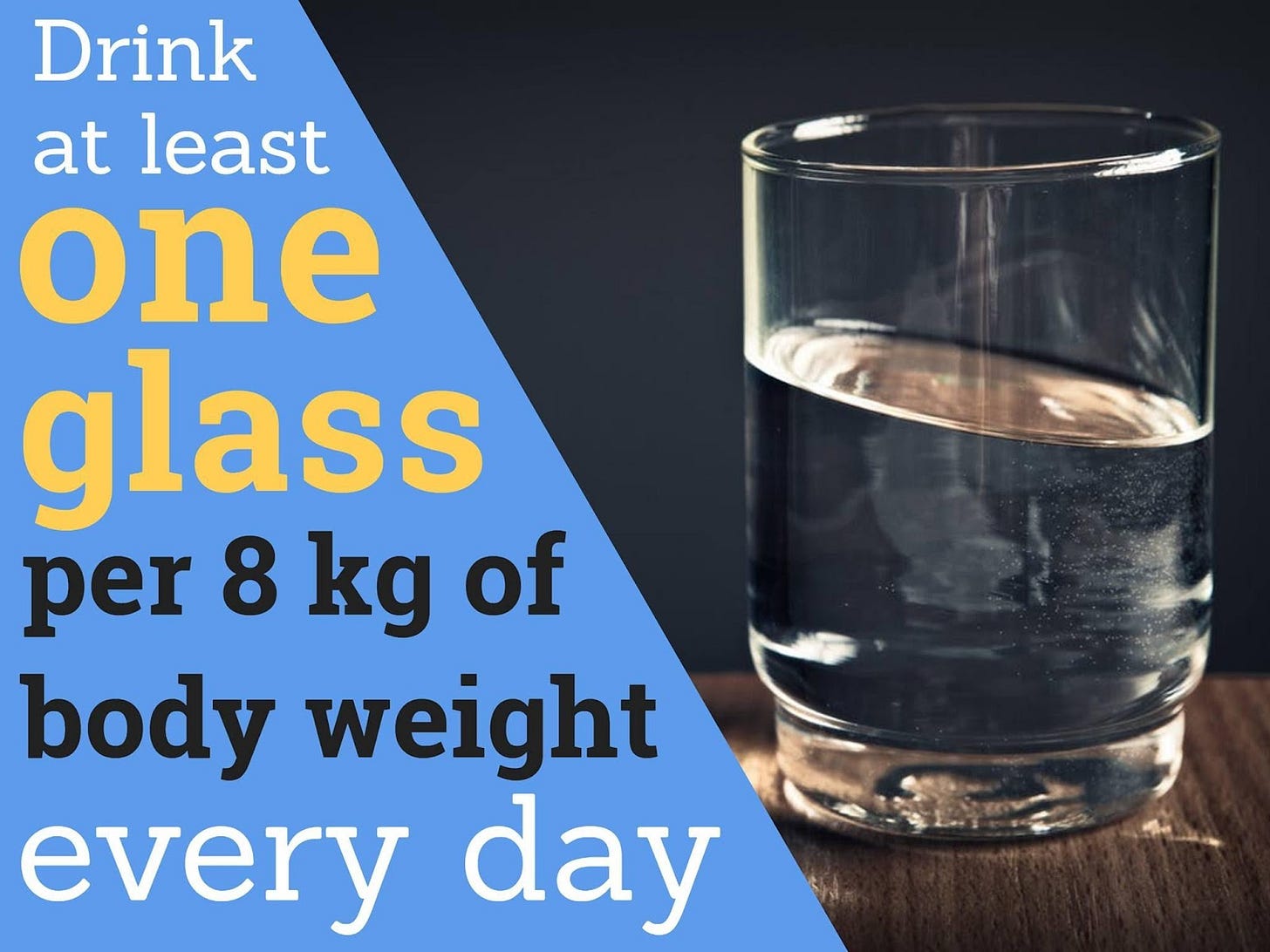Water: The Most Essential Nutrient of All
Embrace a New Year challenge that can radically improve your physical health and mood - reducing the intensity of your stress responses and increasing your vitality.
Water is typically the ‘forgotten’ macronutrient, which is unfortunate because it is an essential part of your nutrition. While most people can survive 3-4 weeks without food, we can only last 3-4 days without any water.
You are around 60% water by volume and it is essential to every bodily process. So, it also stands to reason that you should let yourself get thirsty again.
Whoever believes in me, as Scripture has said, rivers of living water will flow from within them ~ John 7:38
The Bible frequently uses water as a symbol of life and sustenance. Just as it is essential for physical wellbeing, it is also used to represent the source of spiritual life.
New Year Challenge: Increase Your Water Intake
Determine your fluid requirement
Develop a strategy to fulfil it
Prefer pure water over other drink options
Track your water intake
In this challenge, you will focus on increasing your water intake in order to improve your overall health and wellbeing. Some potential outcomes include:
Boosted overall health: You are around 60% water by volume and it is essential to every bodily process.
Increased energy levels: Dehydration can lead to fatigue and weakness. Drinking enough water can help keep energy levels up throughout the day.
Better digestion: Drinking water can help keep the digestive system functioning properly by helping to break down food and move waste products through the body.
Weight loss: Drinking water can help you feel full, which can lead to eating less and losing weight.
Improved physical performance: Adequate hydration is required for maintaining healthy muscles and joints, and can help improve physical performance.
Better skin health: Drinking water can help keep the skin hydrated so may improve the appearance of the skin.
Enhanced mental function: The brain is around 75% water so it makes sense that dehydration can lead to decreased cognitive function and a low mood. Drinking enough water can help improve focus, concentration and emotional stability.
Please note: Drinking water alone will not solve all your health problems. It is equally vital to have a balanced diet and regular physical activity. Drinking sufficient water is only one part of a healthy lifestyle.
The Specifics
The first step is to determine your fluid requirement. The graphic above is a convenient rule of thumb (using a typical 250 ml/8 oz glass), with the recommended daily water intake about 3 litres with 1 litre typically coming from food, leaving 2 litres from fluids. However, these recommendations may vary depending on factors such as your body size, activity level, climate, and overall health. Here are some guidelines:
If you are significantly larger or smaller than average, you can estimate your optimal fluid intake by multiplying your weight in kilograms by 30-40 ml.
If you are exercising at a moderate-high intensity add an extra 500 ml-1 litre per hour.
If it’s warmer and/or drier than usual add an extra 500 ml per day.
If you are sick and losing fluid through vomiting and/or diarrhoea you may need to replenish the losses with extra hydration.
Once you have determined your fluid requirement, you need to develop a strategy to fulfil it. One effective way to increase your water intake is to simply prefer pure water over other drinking options. This means choosing water over sugary drinks, caffeine, or alcohol. Additionally, carrying a water bottle with you throughout the day can help remind you to drink water and make it more convenient to do so.
Finally, it is important to track your water intake in order to monitor your progress and make adjustments as necessary. You can use a water tracker app, a water bottle with rubber bands (start with them all at the top and slide one down each time you finish a bottle), or even just a notebook to keep track of how much water you are consuming each day.
By following these steps, you'll be able to increase your water intake and achieve better hydration. It may take time for your body to adjust to the change but with patience and persistence you will achieve your goal.




